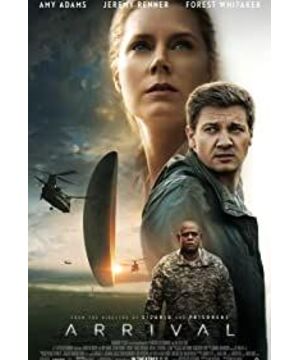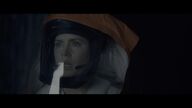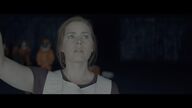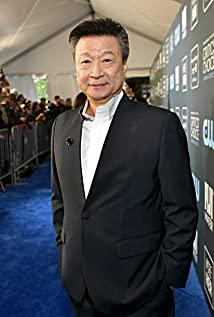When I was bored, I picked up a circle of "Advent" film reviews, probably distributed as follows:
I haven't read the original work. I just watched it as a science fiction film. Most of them have good reviews. They think it is a clear stream in science fiction silly films. The fateful feeling of "knowing that XXX is still XXX" at the end is intriguing;
Because of the movie, I have read the original work shortly before/after, and think that the adaptation is good, the original story is light, it is not easy to change, and the director is still very style to be able to change it like this;
I don't know about novels because of movies, but I don't like novels that much. I feel that movies at least retain the main line, the story is complete, and some new tricks have been added, which is considered qualified as an adaptation. Some feel that Hollywood science fiction has too many clichés, but the general direction of the story is fine.
The diehard fan of the original works feels ignorant, "A wrong adaptation, from beginning to end, from tone to detail, from whole to part, all wrong" (by today).
If I were ten years younger, I would probably think so.
The movie has bright spots in its visual design, but it is not amazing. The basic setting removes the support of the principle of variation, and the free will to "change the future" is retained in the ideological concept. Then you still tell this story?
However, when people reach middle age, they learn to be tolerant in everything.
At least this movie can be seen to be based on the hard work of studying the original. The visual aesthetics design is not in place. There is no way. It is not that in the 1980s Ridley Scott could grab a lot of cartoonists to help him design the entire future of "Blade Runner". In the golden age of the world, the accumulation of aesthetics was not in place, or the right design resources were not found. This is an objective shortcoming.
The removal of the explanation of the variational principle and the fact that "language determines thinking" can barely support the story to justify itself (at least many viewers who have not read the novel claim to understand it). In order to make the plot compact, it is estimated that the screenwriter had to cut down the setting.
Finally, I called General Shang on this. What I understand is that the screenwriter 1) In order to have a real movie moment of a sci-fi blockbuster, a reversal point must be made; 2) After rolling the novel N times, I think hard to see if I can It can't be further advanced-this is also the most critical place to test the director's IQ.
Classic sci-fi movies such as "Blade Runner" and comparative novels also cut certain settings and advance the original settings one step further. Although human beings are weak and incomplete, only those who are human can retain the last trace of dignity; once the bionic person in the movie is successfully implanted in human memory, he will also empathize. After this line is blurred, human Need to re-examine myself). The adaptation of the novel in the "Blade Runner" movie is also subversive, but no one says that it is a failed adaptation. The IQ and compulsion shown in the movie do not surpass the novel, or at least not lose the novel.
The director of "Arrival" also wanted to open new brains on the basis of the novel, so from the details of the appearance of the term "non-zero-sum game" in the future/present interactive perception, the brains came out "obtained by future conversations." Information to call people now" is such a new idea-so it immediately exposed the upper limit of the director's IQ.
The reason why Ted Jiang is NB is that a fatalistic story that goes against the intuition of human free consciousness can stand, because he 1) finds the correct theory or hypothesis to support the setting; 2) he answers all the rebuttals you can think of in advance Well, if the IQ is not as good as his, you can't fault it; 3) He also pre-deduced what can happen after setting it to the extreme. If the IQ is not as good as his, it is impossible for you to set it. Go deeper. (This is also the reason why many of his novels are so soft in appearance and deadly hard in core)
"Relying on the information obtained from future conversations to call people now" is wrong (even if you insist to circle, you can circle the past), any aliens who need human help after three thousand years are so vulgar to help humans now. Unbearable, in essence, it is the "Back to the Future" set of botched science fiction/film. The tone of the novel was originally to refute this set. The movie is good, and it jumps directly to the opposite of the novel. In order to create a climax, it destroys the Great Wall. The director's IQ is no better than Jiang Sir, and he has to work hard to achieve the goal of surpassing Jiang Sir, and he can only extend his sympathy.
I don’t mention other types of novels. They are merely film and television adaptations of classic science fiction novels. They really want to fight for IQ. It’s best to test your IQ before adapting the screenwriter. If you can’t compare it to the original author, the most you can do is cut and cut settings, add details, beautify the design, and don’t think about other things.
View more about Arrival reviews











